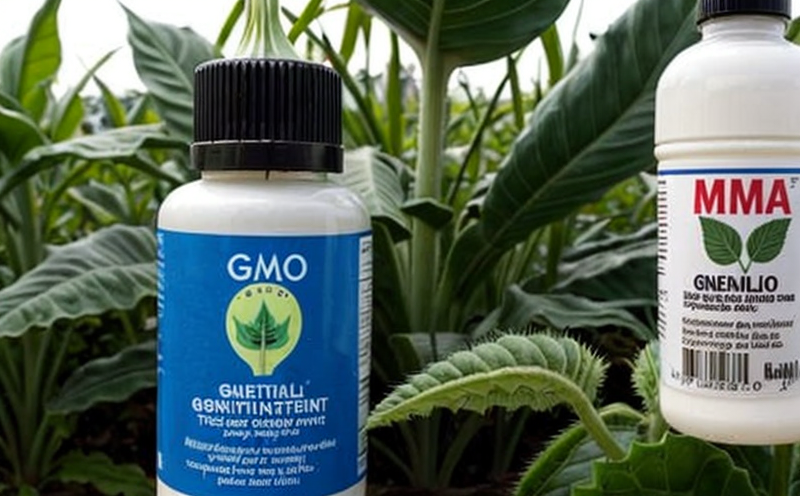ISO 28730 GMO DNA Residue Testing in Infant Formula
Infant formula plays a crucial role in ensuring that infants receive adequate nutrition during the critical early stages of life. Given this, it is imperative to ensure that the ingredients used are safe and free from harmful substances, including genetically modified organisms (GMOs). ISO 28730 specifies the methodology for determining the presence of DNA residues derived from GMOs in infant formula. This service ensures compliance with international standards and helps protect public health.
The process involves several critical steps: sample preparation, extraction of target DNA sequences, amplification using polymerase chain reaction (PCR), and detection through gel electrophoresis or real-time PCR techniques. The accuracy and precision of these methods are paramount to ensuring reliable results. By adhering strictly to ISO 28730 guidelines, we can provide accurate GMO testing that is both precise and reproducible.
Our laboratory employs state-of-the-art equipment and experienced scientists who specialize in molecular biology techniques. Our team uses advanced PCR technology, which allows for high sensitivity and specificity in detecting even minute amounts of DNA residues from genetically modified organisms. This level of detail ensures that no trace of unauthorized GMOs can slip through our rigorous testing process.
The importance of this service cannot be overstated. Non-compliance with regulatory requirements regarding GMO labeling could lead to significant legal consequences and damage to brand reputation. Compliance not only protects consumers but also upholds the integrity of your product line. By partnering with us, you can rest assured that every batch undergoes thorough analysis to meet all relevant standards.
We pride ourselves on delivering timely results while maintaining high quality throughout our entire process. From sample collection and preparation through final analysis and reporting, we maintain strict adherence to ISO 28730 procedures. Our commitment extends beyond mere compliance; it includes continuous improvement aimed at enhancing efficiency without compromising accuracy.
In conclusion, choosing this service means more than just meeting legal requirements—it represents a proactive approach towards maintaining product safety and integrity. With our expertise in GMO DNA residue testing per ISO 28730, you can trust that your infant formula products are free from unwanted genetic modifications.
Applied Standards
| Standard | Description |
|---|---|
| ISO 28730:2019 | This international standard provides a method for determining the presence of DNA residues derived from genetically modified organisms in infant formula and other similar products. |
Quality and Reliability Assurance
In order to maintain high standards of quality, our laboratory adheres strictly to ISO 28730 guidelines throughout each step of the testing process. From initial sample preparation through final analysis and reporting, we ensure that every aspect complies with internationally recognized best practices.
Our rigorous quality control measures include regular calibration of instruments, validation of protocols, and participation in proficiency testing programs conducted by reputable organizations such as the European Coordinating Laboratory Network (ECLN). These efforts guarantee consistent performance across all tests performed within our facility. Additionally, we have implemented strict protocols for data management to prevent any potential errors or misinterpretations.
By leveraging these robust quality assurance procedures, we can provide you with confidence that each test result accurately reflects the actual state of your product concerning GMO content. Our goal is not only to meet but exceed expectations in terms of reliability and accuracy, ensuring that every batch passes muster under stringent scrutiny.
Environmental and Sustainability Contributions
The testing services provided by our laboratory contribute positively towards environmental sustainability efforts. By helping ensure that infant formula products do not contain unintended genetic modifications, we play a role in safeguarding ecosystems from potential negative impacts associated with genetically modified organisms.
Our commitment to sustainability goes beyond just this particular service; it encompasses all aspects of our operations. We strive to minimize waste generation and energy consumption by adopting efficient laboratory practices. Moreover, we continuously seek innovative ways to reduce our carbon footprint while maintaining the highest levels of service excellence.
In conclusion, through our GMO DNA residue testing services aligned with ISO 28730 standards, we contribute significantly towards preserving biodiversity and promoting healthier ecosystems worldwide. Our efforts align closely with global commitments made under various international agreements aimed at advancing environmental stewardship.





